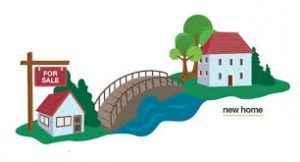
After several years as a home owner, my friend was set to buy the home of his dreams. He always wanted to own an acreage outside of town. He had visions of having a few animals, a small tractor and lots of space.
As a person with experience buying homes he felt that he was ready and that he knew what he was getting into. Wrong. As soon as you consider buying a home outside of a municipality there are a number of things to consider, not the least being how different it is to get a mortgage.
Zoning – is the property zoned “residential”, “agricultural” or perhaps “country residential”?
Some lenders will not mortgage properties that are zoned agricultural. They may even dislike country residential properties. Why? If you default on your mortgage the process of foreclosing on an agricultural property is very different and difficult for lenders. Taking a farm away from a farmer means taking their livelihood away so there are many obstacles to this.
If you are buying a hobby farm, some lenders will object to you having more than two horses or even making money selling hay.
Water and Sewerage – if you are far from a city your water may come from a well and your sewerage may be in a septic tank. A good country realtor will recommend an inspection of the septic tank as a condition on the purchase offer. Be prepared for the inspection to cost more than it cost you in the city. Many lenders will also ask for a pot ability and flow test for the well. A house without water is very hard to sell.
Land – most lenders will mortgage a house, one outbuilding and up to 10 acres of land. Anything above this amount and it will not be considered in the mortgage. In other words, besides paying a minimum of 5% down payment you could end up having to pay out more cash to cover the second out building and the extra land being sold.
Appraisal – your appraisal will cost you more as the appraiser needs to travel farther to see the property. It may also come in low as rural properties do not turn over as quickly as city properties. Be prepared to have to come up with the difference between the selling price and the appraised value of the property.
Fire Insurance – living in the country can be nice but you are also far from fire hydrants and fire stations. Expect to pay more for home insurance.
Finally, if you are thinking about purchasing a home in a rural area, be sure to speak to a Dominion Lending Centres mortgage broker before you do anything. They can often recommend a realtor who specializes in rural properties and knows the areas better than the #1 top producer in your city or town.
Contact me for your best mortgage options 705.669.7798 or trina@ndlc.ca
#trinamortgages #mortgages #ndlc #freedomofchoice
#bestmortgageforme #executive #firstimehomebuyer
If you found this information valuable, I only ask that you share with your friends and family.
Copyright DLC

